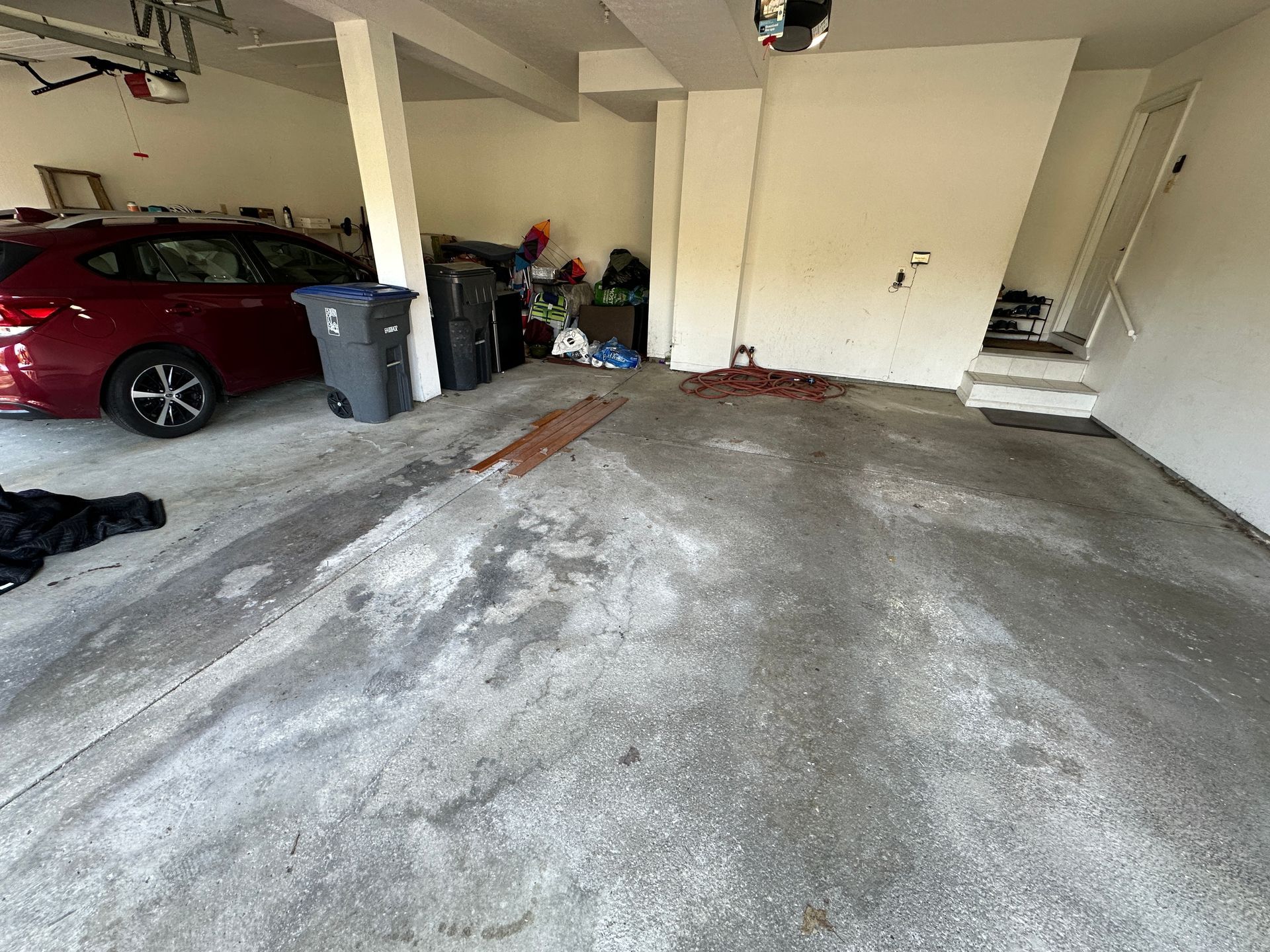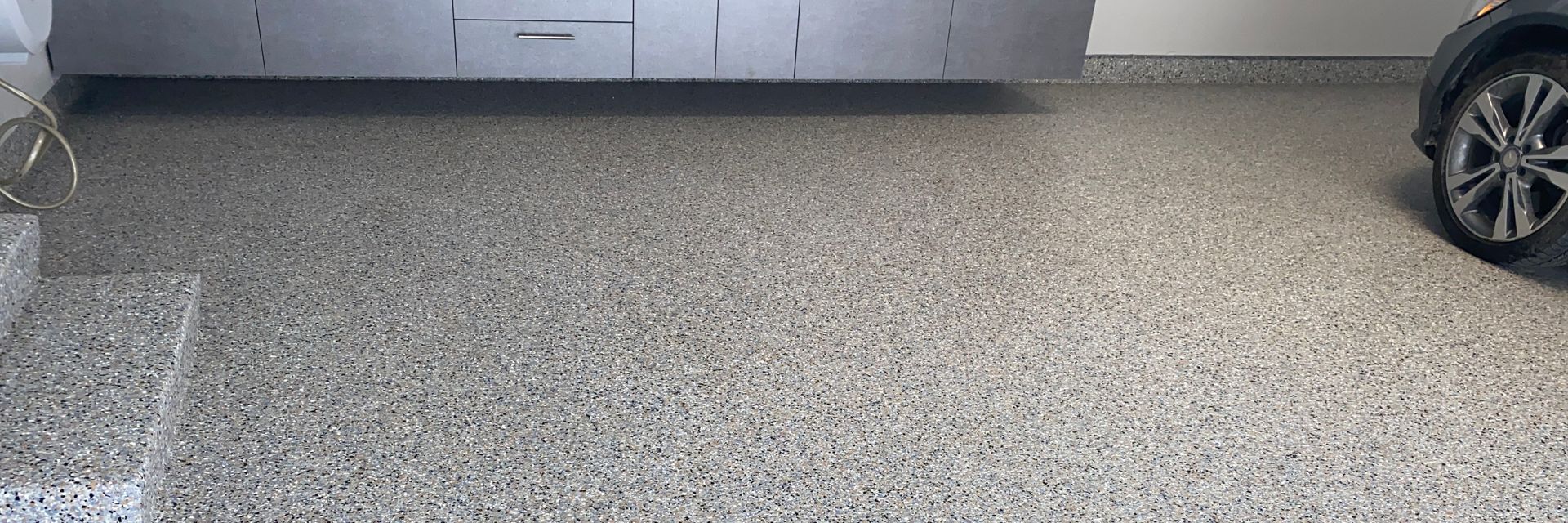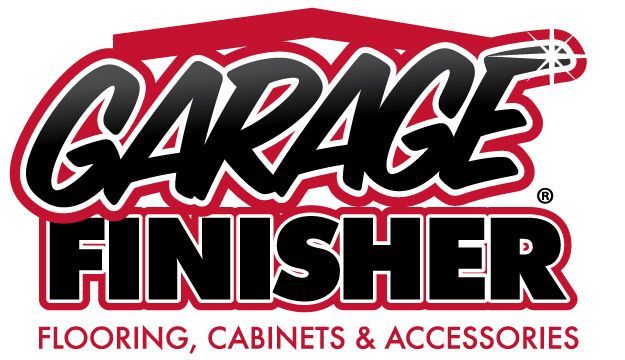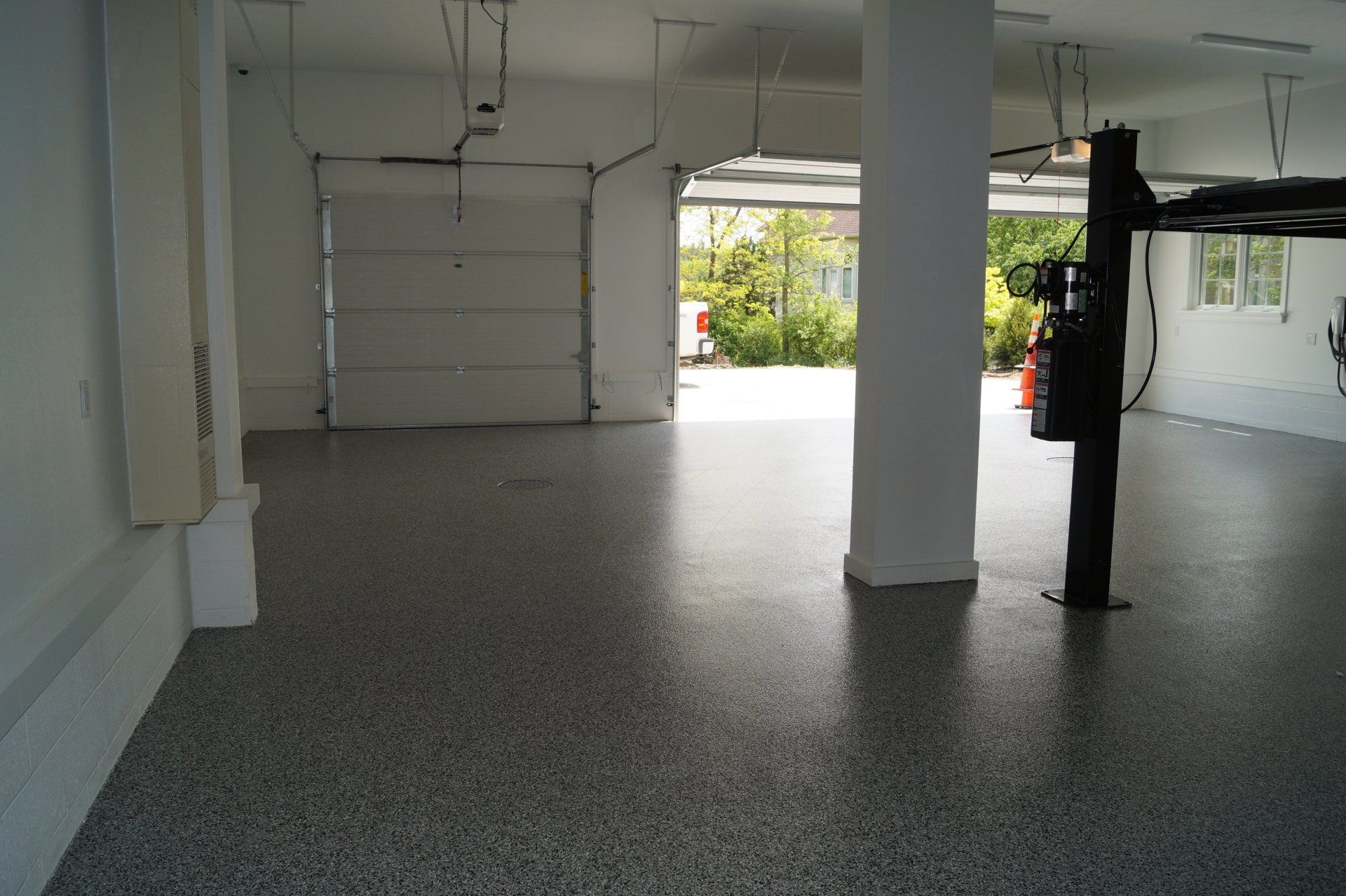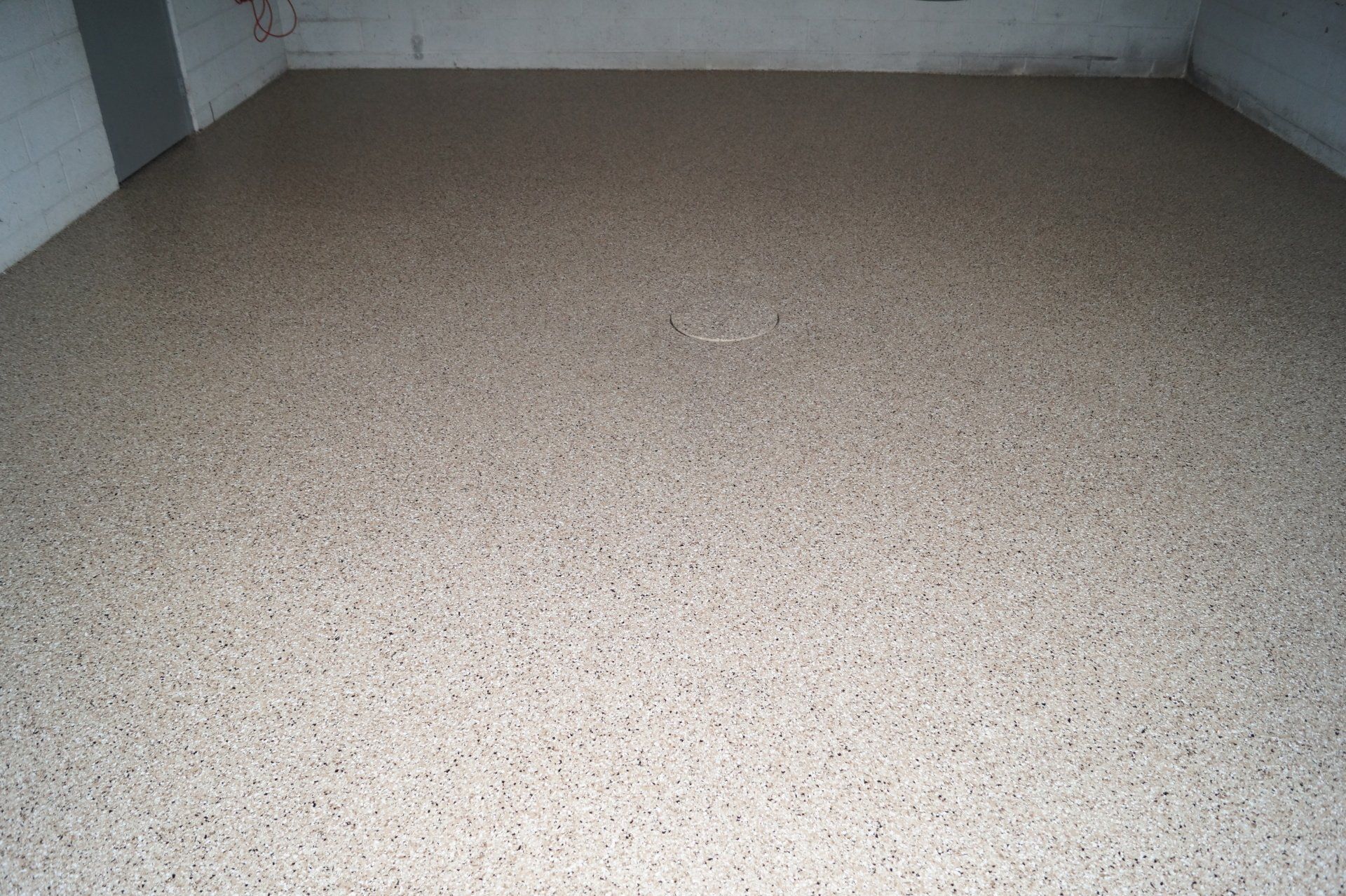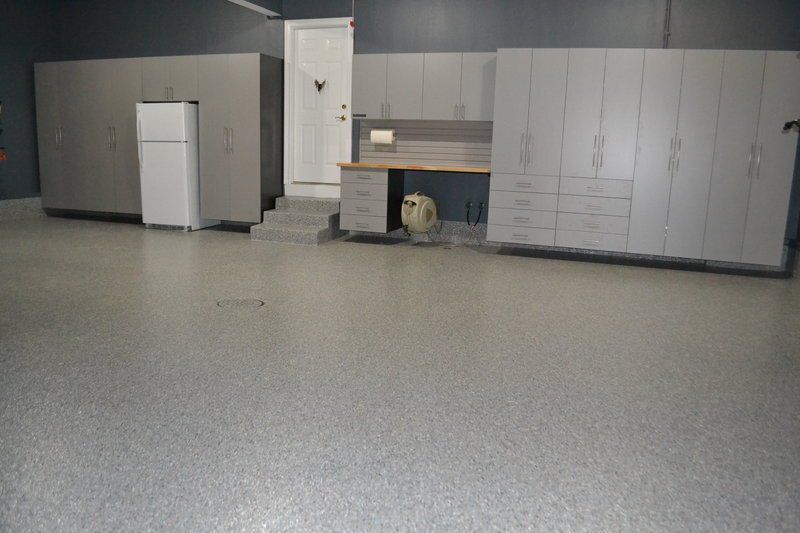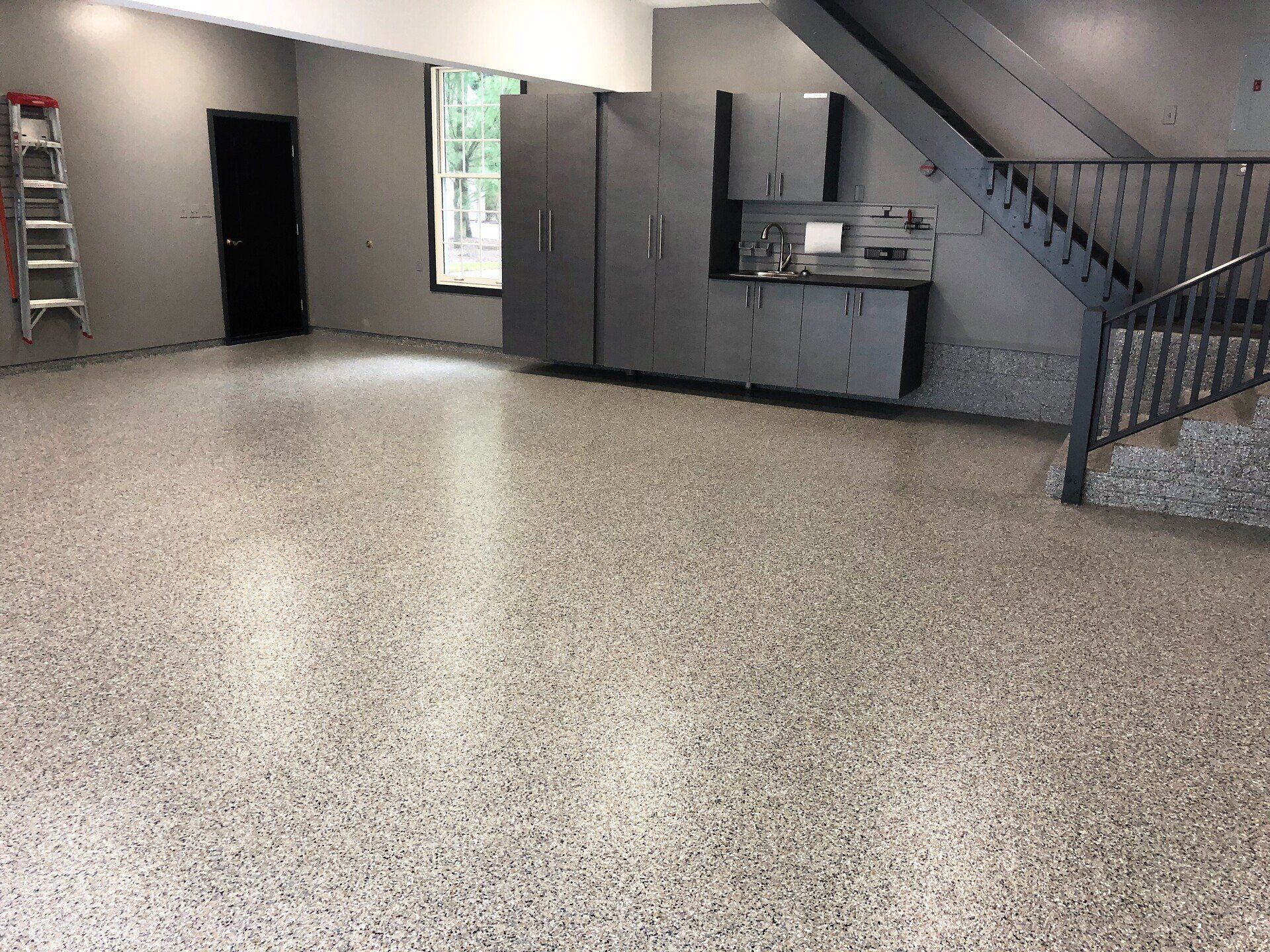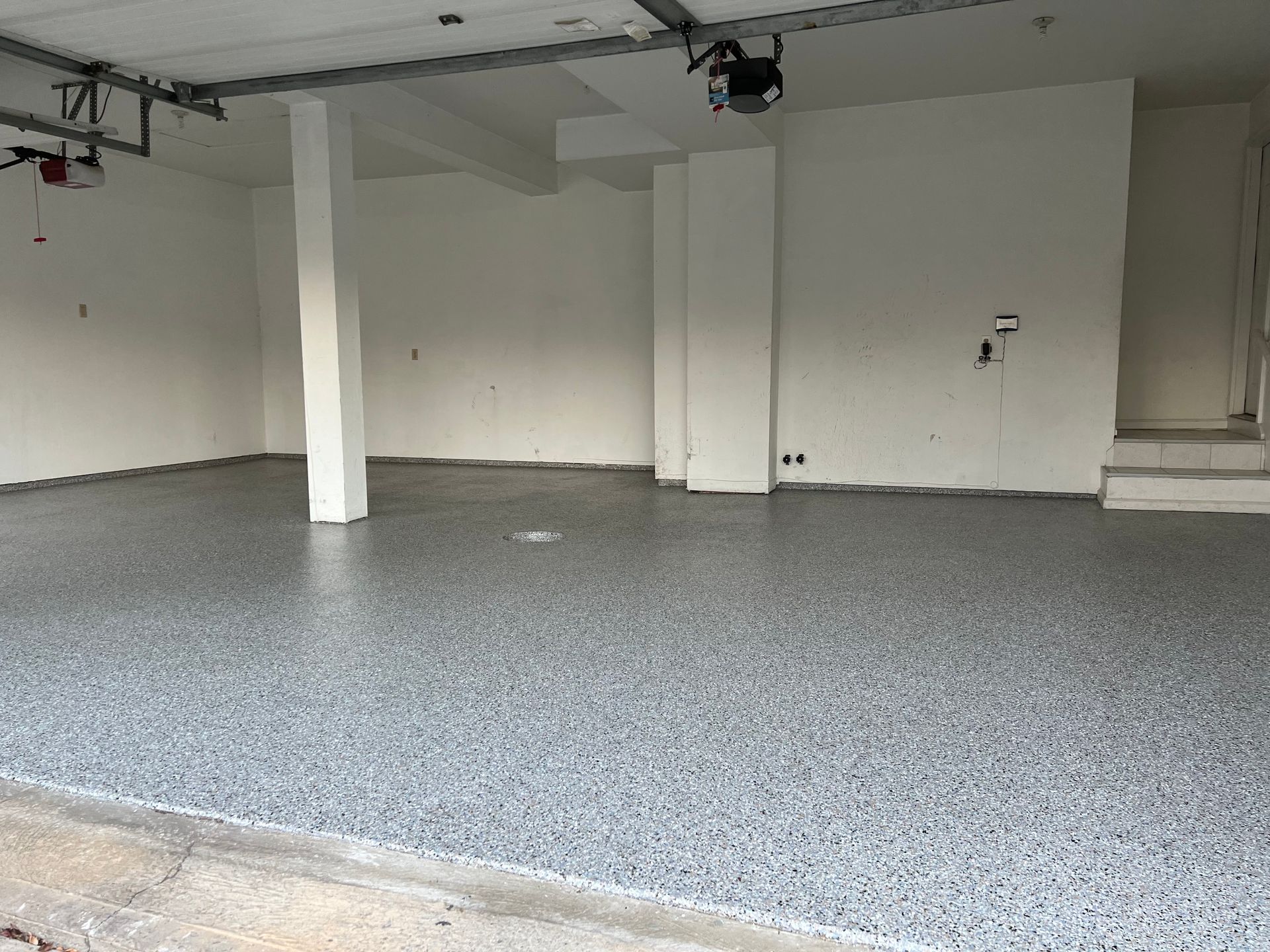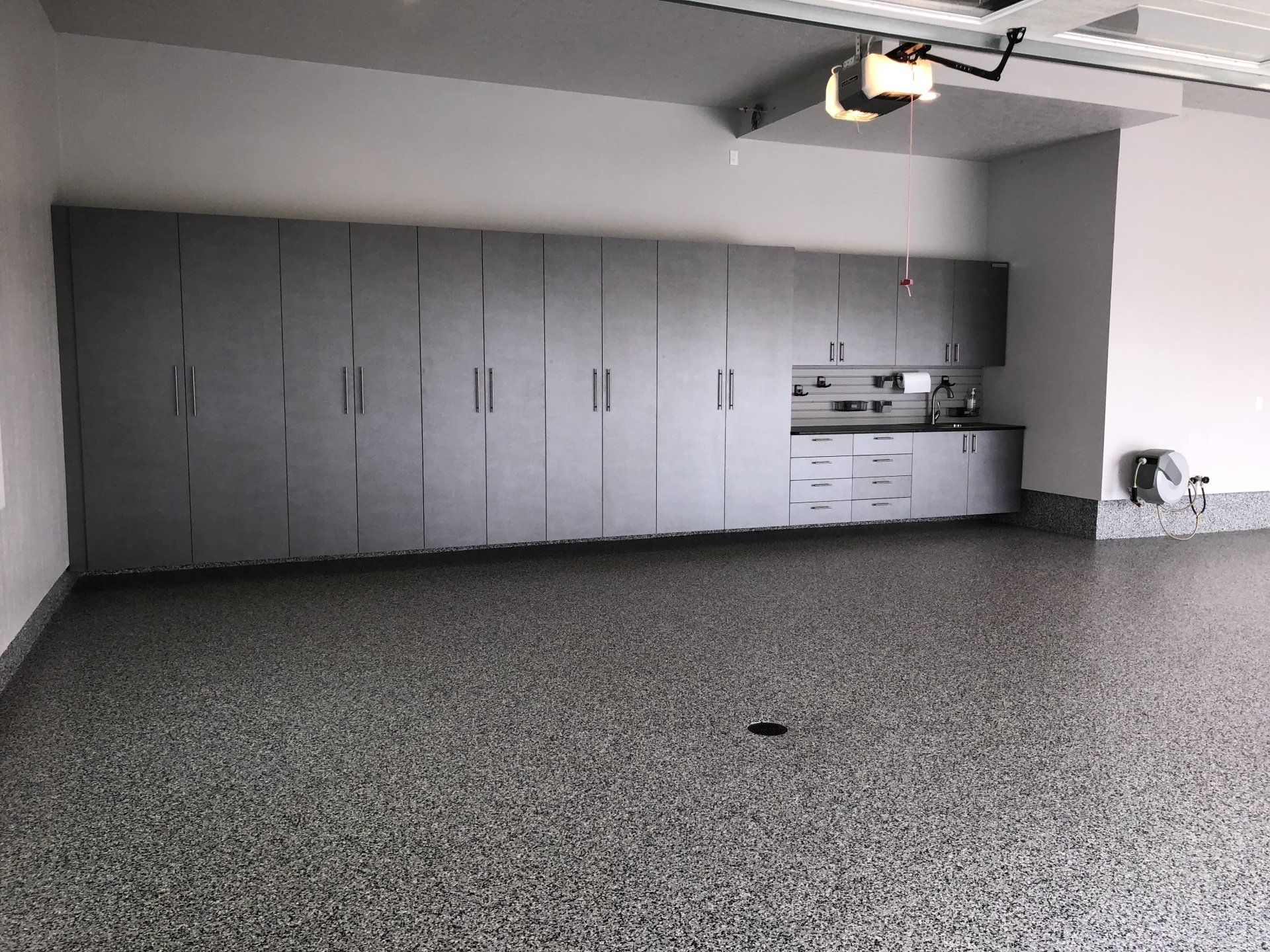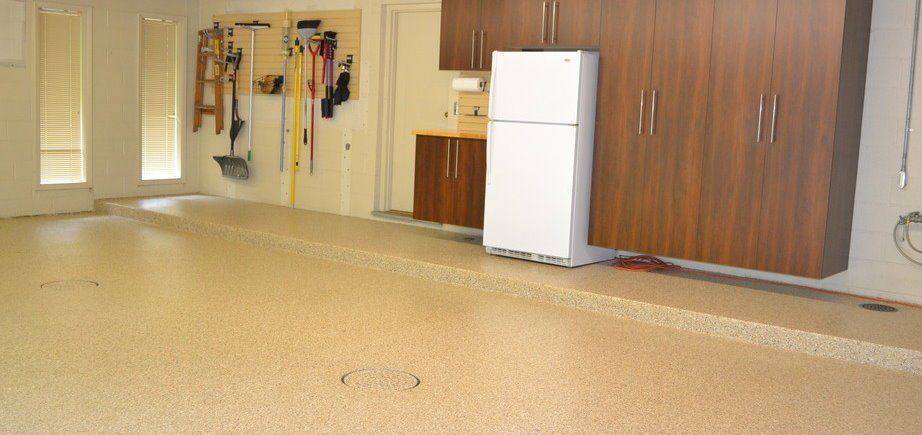Why Anyone Should Refinish Their Concrete Garage Floor
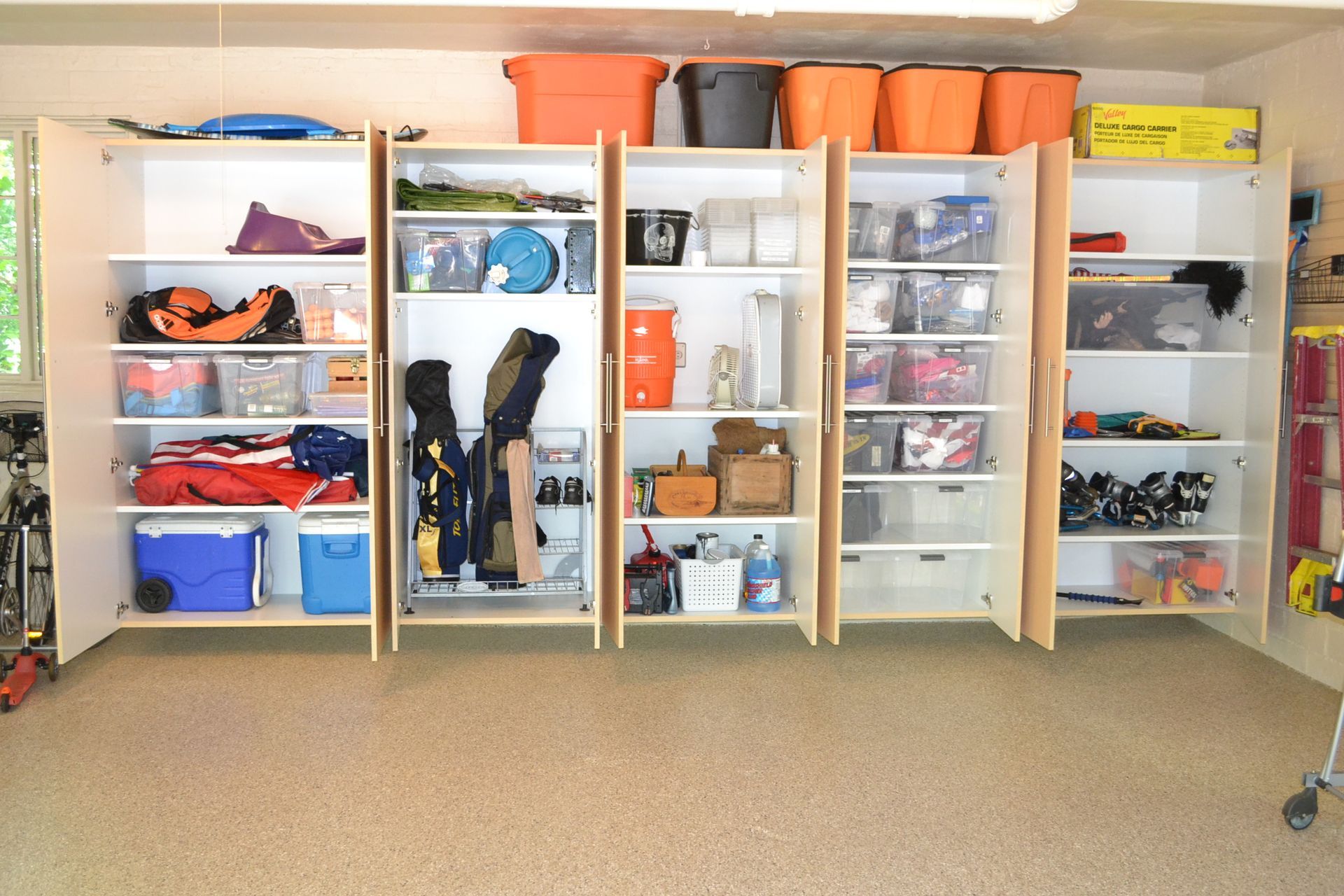
In most homes, and even a lot of businesses, garage floors tend to be left 'unfinished.' That is, they only have a plain concrete slab for a floor, with no other protection and enhancements. That's a problem. Concrete, by itself, is just not a good flooring material - which is why it makes so much sense to resurface your garage floor with a resinous coating.
Both homeowners and businesses are increasingly turning to polyaspartic coatings as the best option for residential or commercial floor coating. A single affordable upgrade - which only takes about a day - can give you an amazing floor that will last for decades with minimal maintenance.
So, let's talk about why plain concrete is a poor floor, and all the many ways that polyaspartic coatings can improve on it.
I. The Problems with Concrete
Make no mistake, concrete is a great building material. It's cheap, easy to install, and reasonably strong. That's why it's the default material for garage floors, as well as other unfinished rooms such as basements.
However, it's not a good flooring material by itself. This is because:
Concrete is brittle. Without enhancement, concrete is extremely brittle, easy to chip or crack. All you have to do is drop a moderately heavy object, such as a paint can, and it's probably going to knock a chunk out of the floor. Likewise, even small shifts in the ground can create major cracks that will only spread and grow over time. Road salt reacts with bare concrete quickly causing it to spall and pit.
Concrete is easily stained. Concrete is porous, meaning that any spilled liquids will sink right into it. Any sort of staining liquid, such as motor oil, will get soaked up like a sponge. If this happens, it's extremely difficult - sometimes impossible - to clean up. Worse, if the concrete is sitting directly on top of the ground beneath, spills can seep directly into the earth and do environmental damage.
Concrete nurtures mold. The porous nature of concrete also means that it's excellent at harboring mold, mildew, and similar microbial life. Combined with the cool, dark conditions in many garages, it's a great place for mold to live - and that's bad if you want to maintain your property value. It's even worse if you're doing anything in your garage such as home-brewing, which can be affected by contaminants.
Concrete is hard to repair. If concrete has become damaged or heavily stained, the only real way to fix it is to physically cut out the affected area and then pour in more concrete. This new concrete will never quite match the color and texture of the surrounding floor, so the 'patch' will always be visible.
In short, a concrete floor might start out looking all right, but it will quickly become stained and damaged. Over time, it can even break down to the point of being dangerous, such as cracks that can be a tripping hazard.
Coating the concrete with a material like polyaspartics can fix all of this.
II. What is Polyaspartic Flooring?
Polyaspartic coating is a resinous blend based in polyurea, which is a type of man-made plastic. It can be blended into a form that is liquid and spreadable but will quickly harden into an extremely hard solid surface.
This is true of any resinous material you might put on a concrete floor, including alternatives such as epoxy and MMA. However, polyaspartic flooring was developed specifically to be the best concrete floor finisher. It takes the best aspects of epoxy and earlier polyurethane-based flooring materials, while avoiding most of the problems that those products can have.
The result is a material that is affordable for almost anyone to install, which will create a long-lasting floor that could potentially last as long as your house or business.
III. The Benefits of Polyaspartic Coating
As long as your polyaspartic flooring is installed by trained professionals, you'll end up with an amazing floor. Polyaspartic coatings are:
Strong. Take all the strength of concrete, then add even more strength. Polyaspartic coatings have amazing resistance to crushing damage, capable of holding up even heavy machinery such as steam rollers or cherry-pickers. It's a popular option for industrial spaces for that reason. In addition, it's also highly resistant to cracking. Falling heavy objects are much less likely to do significant damage. Typically, they just bounce off of the floor.
Long-Lasting. The expected lifespan of a properly installed polyaspartic floor is measured in decades. We're truly not exaggerating when we say a polyaspartic coating can last as long as the building itself.
Hygienic. Unlike concrete, polyaspartic coatings give very little opportunity for microbial life to flourish. This means far fewer concerns about mold and mildew setting up in your garage or basement, and it also resists other microbes like bacterial diseases.
Easily cleaned. If a spill occurs on a polyaspartic floor, all you need to do is wipe it up. Basic cleaning can be as simple as sweeping it with a soft-bristled broom, or just hosing it down. You may not even have to worry about cleaning it with cleaning products, because there just isn't much which can stain or damage the floor.
UV-resistant. One of the biggest problems with epoxy, specifically, is that it is very weak to sunlight and other sources of UV light. Exposed to UV, it will quickly discolor and eventually start breaking down. Polyaspartic coatings do not have this weakness and can be left in sunlight indefinitely.
Chemical-resistant. Polyaspartic floors are also highly resistant to just about any chemical you're likely to find in a garage, such as motor oil, and even some lighter acids such as pool acid. Harsh chemicals can potentially damage it, but even then, the chemical resistance of polyaspartic flooring is higher than other resin types except in very specific circumstances.
If you do expect to have 'heavy duty' chemicals around your polyaspartic floor, be sure to tell your garage floor installers about it. They may be able to enhance the mix to meet your needs.
Beautiful. Finally, let's not forget about looks. It's easy to embed decorative elements in the polyaspartic resin before it sets, allowing for a wide variety of visual styles. Metal flakes in the mix can create highly unique swirled patterns, or other flakes can replicate the look of materials like granite or sandstone. A polyaspartic garage floor can be the nicest-looking garage floor you've ever seen, and far better than basic concrete.
How Garage Finisher Creates the Best Polyaspartic Flooring
At Garage Finisher, we've been champions of polyaspartic flooring for almost as long as it's been on the market. In fact, we've developed our own specific blend and installation process to create The Forever Floor.
What makes our polyaspartic flooring special? It's our five-layer process. Other polyaspartic flooring shops typically only use two or three layers. Our five-layer method creates floors that are even stronger and longer-lasting than other polyaspartic options.
Layer 1 starts with a basic primer coat, with a polyaspartic blend designed to penetrate deep into the concrete's surface before hardening. This ensures the resulting floor is permanently bonded with the concrete, with no risk of peeling up later.
Layer 2 is a clear coat, which holds the decorative chips. This bonds to the bottom layer and creates more impact resistance.
Layer 3 is the decorative chips in your choice of color and blend.
Layer 4 is another clear coat, this time with thousands of special slip-resistant beads embedded in it. Without enhancement, basic polyaspartic flooring can become slippery when wet. However, not the Forever Floor. This 4th layer, which most other shops skip, ensures that the floor will always offer high traction even when there's been a spill.
Finally, Layer 5 is a finishing topcoat that locks in everything below, while adding yet another extra layer of strength.
The result is the strongest and longest-lasting flooring you could want in a home or business. Whether you're finishing up your home garage or basement, or looking for an excellent commercial floor coating, our Forever Floor is perfect in either case. We've installed thousands of floors around the Cleveland area, and we're ready to improve your garage as well.
Contact us to learn more or receive a free estimate.
